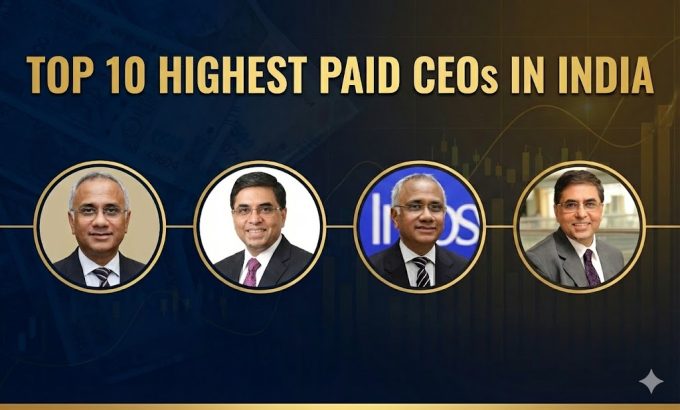India has long been a hub of entrepreneurship and innovation. From the earliest days of the country’s industrialization to the modern era of startups and tech giants, visionary business leaders have shaped its economic landscape. These leaders are not just known for their business acumen but also for their ability to foresee and adapt to changing trends, taking their companies to new heights in the global market.
In this article, we will take a closer look at three of the most influential and visionary business leaders of India—each of whom has played a pivotal role in transforming industries and contributing to India’s growth on the world stage. Their stories are a blend of grit, determination, and vision, providing inspiration for entrepreneurs and business enthusiasts worldwide.
1. Dhirubhai Ambani – The Founder of Reliance Industries
Visionary Leadership in Diversification and Growth
Dhirubhai Ambani, often regarded as one of the greatest business visionaries in India, transformed Reliance Industries from a small textile company into one of the largest conglomerates in the country. His entrepreneurial journey is nothing short of extraordinary, considering he started with humble beginnings. Born in 1932 in Gujarat, Dhirubhai had a vision to build a company that could shape India’s industrial future.
Turning Reliance into a Global Powerhouse
What made Dhirubhai Ambani stand out was his ability to foresee the future of the Indian economy. His vision of a self-reliant India in the 1970s and 1980s led him to develop Reliance as an integrated, multi-sector corporation. Under his leadership, Reliance ventured into petrochemicals, refining, telecommunications, and even retail, paving the way for its emergence as a global leader in the energy and telecom sectors.
A key factor behind Dhirubhai’s success was his focus on backward integration. He brought together various elements of the business under one roof, ensuring that Reliance could manufacture its raw materials, reduce costs, and maintain control over the supply chain. His approach enabled Reliance to cut through the competition and become an industry leader.
Moreover, Dhirubhai’s foresight into the potential of the capital markets and his innovative approach to funding were crucial in turning Reliance into an investment magnet. Reliance was the first Indian company to raise capital through a public offering in the Bombay Stock Exchange in 1977, which was a bold step at the time and set the tone for future Indian IPOs.
Legacy of Innovation and Growth
Dhirubhai Ambani’s legacy is carried forward by his sons, Mukesh and Anil Ambani, but it is his visionary leadership that transformed Reliance into a global powerhouse. His approach to business and his ability to leverage India’s growing consumer base to his advantage set the tone for future business leaders in the country. He will always be remembered as one of India’s greatest business minds, a true visionary whose foresight led to monumental industrial growth.
2. Ratan Tata – The Visionary Leader Behind Tata Group’s Global Expansion

A Vision of Global Reach and Innovation
Ratan Tata, the former chairman of the Tata Group, is perhaps one of the most respected and admired business leaders in India and around the world. His leadership helped transform the Tata Group, a conglomerate that has existed for over 150 years, into one of the most respected and diverse corporations in the world. Ratan Tata’s leadership was rooted in the belief that businesses must be driven by a sense of purpose, ethics, and a desire to contribute to society at large.
Born into the illustrious Tata family, Ratan Tata took over the reins of Tata Group in 1990. Under his leadership, Tata Group expanded beyond traditional sectors such as steel, power, and chemicals, and ventured into new areas like automotive, information technology, and hospitality. Tata Group’s acquisition of global companies like Jaguar Land Rover and Tetley Tea not only bolstered the conglomerate’s global footprint but also brought international recognition to India as a powerhouse for business.
A Legacy of Strategic Acquisitions
One of the most defining moments in Ratan Tata’s career was the acquisition of Jaguar Land Rover (JLR) in 2008, a strategic move that brought two iconic British brands under the Tata Group umbrella. This acquisition put India on the global map in terms of luxury automobile manufacturing and displayed Ratan Tata’s global vision. Similarly, Tata’s acquisition of Tetley Tea in 2000 was a landmark decision that allowed Tata Group to make its presence felt in the global food and beverage market.
Ratan Tata’s decision to enter the automotive industry with the Tata Nano was another example of his visionary leadership. Though the Nano’s market success was limited, the idea of creating a “people’s car” for India at an affordable price showed Ratan Tata’s commitment to making a difference in society and improving people’s lives.
Vision for Corporate Social Responsibility (CSR)
Ratan Tata’s vision for business extended beyond profit-making. He strongly believed in Corporate Social Responsibility (CSR) and made significant strides in using the resources of Tata Group for the betterment of society. Tata Group’s philanthropic arm, the Tata Trusts, is one of the largest charitable organizations in India and has contributed to a wide array of social causes, from education and healthcare to rural development and the empowerment of women.
Tata’s legacy as a business leader is marked not only by his strategic business decisions but also by his deep sense of responsibility towards society and ethical business practices. His vision continues to shape the future of Tata Group and serves as an inspiration for many leaders worldwide.
3. Narayana Murthy – The Father of Indian IT Revolution
Leading Infosys to Global Success
Narayana Murthy, the co-founder of Infosys, is widely regarded as the man who brought India to the forefront of the global IT revolution. Starting Infosys in 1981 with a small team and limited resources, Murthy’s vision was to create a company that could offer high-quality software solutions and services to international markets. Little did he know that his vision would lead to the creation of one of the largest IT services firms in the world.
Murthy was an early adopter of the idea that technology could bridge the gap between nations and economies, and he worked tirelessly to create a company that was globally competitive. He recognized the growing demand for IT services in the global marketplace and was able to position Infosys as a leader in software development, consulting, and systems integration.
Ethical Business Practices and Global Impact
Under Murthy’s leadership, Infosys became known not just for its technical expertise but also for its strong ethical standards and commitment to delivering value to clients. Murthy was one of the first to advocate for transparency in business operations, and Infosys was one of the first Indian companies to implement the American Sarbanes-Oxley Act (SOX), setting a benchmark for corporate governance in India.
Murthy’s focus on employee welfare, ethical practices, and commitment to innovation helped Infosys become a global IT powerhouse, with operations in over 50 countries. His leadership philosophy emphasized the importance of building a culture of trust and integrity, which has been instrumental in the company’s long-term success.
Legacy of Mentorship and Innovation
Narayana Murthy’s contributions to the Indian tech industry are immeasurable. His vision not only helped Infosys rise to prominence but also contributed to the growth of the entire Indian IT sector. He has inspired countless young entrepreneurs and technologists to pursue their dreams, and his legacy continues through the Infosys Foundation, which supports various charitable causes.
Murthy’s leadership also helped establish India as a global destination for outsourcing and IT services, creating millions of jobs and helping boost the country’s economy. Today, his influence is still felt in the world of technology and entrepreneurship.
Conclusion
India’s business landscape is rich with visionary leaders who have shaped its economy and global standing. Dhirubhai Ambani, Ratan Tata, and Narayana Murthy are just a few examples of leaders who, through their foresight, creativity, and ethical approach to business, have set benchmarks for others to follow.
These visionary business leaders not only built companies but also helped shape the future of industries in India and abroad. Their legacies continue to inspire countless entrepreneurs, executives, and innovators across the globe. As India continues to grow as an economic powerhouse, the visionary leadership exemplified by these trailblazers will continue to inspire future generations of business leaders.










Leave a comment